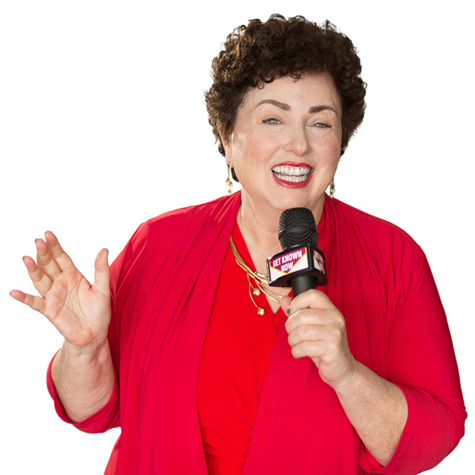Continuing with the theme of our last blog, here are the next 7 common misconceptions and myths that people still believe when it comes to promoting themselves. Try not to fall into the trap of following them. Remember the first 7 were:
- All publicity is good publicity.
- If it’s not broken, don’t fix it.
- This is the story.
- Just because I have a great product, I’ll succeed.
- People will find me. I will get what I deserve.
- I can run my entire business.
- Hit them hard and fast.
MYTH:
People are taught that at meetings they should establish that they’re important and demonstrate their expertise quickly, and so they try to make a strong impression immediately by grabbing the spotlight and firing away. They frequently participate too soon and become too involved. After the initial flurry, they often have little to say.
REALITY:
Sitting quietly, letting others speak, and listening are usually more effective than firing first and flaring out. Melt into the background, listen, observe, and wait. Fully understand all that is being said, all the implications, and then contribute. Generally, it will give you a better grasp and help you be more influential.
8. Bowl them over.
MYTH:
More is not always more. Many people think that they must impress others by demonstrating how much they know. Therefore, they frequently go overboard and swamp people with useless knowledge. Many lecturers get so lost in detail that they don’t realize that they’re putting their audiences to sleep.
REALITY:
Too much information is unnecessary and can work against you. It can confuse people and cause them to lose interest. Editing is an art, and less is frequently more. When people provide excessive information, they often end up talking at people rather than engaging in meaningful conversation. By offering less information, it can encourage others to ask questions, seek assistance, and connect with experts who can provide the necessary knowledge to fill any gaps.
9. Sources will not share.
MYTH:
When you ask for information about a person you would like to meet, your sources won’t be forthcoming. People are reluctant to share information and their sources.
REALITY:
When people have dealt with you, trust you, like you, and believe in you, they will give you tons of information. They will trust you and share their confidences. They will want you to succeed. If they are convinced that you will do a great job for their contacts, they will make your job easier because you will make them look good as well.
10. You could be helping them.
MYTH:
When you seek referrals, you are essentially asking for a favor. However, many individuals have been taught not to ask for favors, as some consider it impolite, and others wish to avoid feeling obligated.
REALITY:
When you ask for referrals, you are giving your contact the opportunity to help his or her friends. If you perform excellently and provide value, your contacts will be delighted to recommend you because their recommendation will benefit their friends greatly. Learn to ask for and give help graciously; it’s how life works best.
11. Successful people don’t ask.
MYTH:
When people ask for referrals, that is a sign of weakness because it means that their business isn’t doing well.
REALITY:
Look at the most successful people you know. You will find that the bulk, if not all, of their business comes from referrals. Referrals are how they built their businesses, and they continue to cultivate referrals to maintain and develop it.
12. Request a referral, not an introduction.
MYTH:
If I get a name, it’s a referral. Therefore, my sources only must provide me with names and nothing more.
REALITY:
Joanne Black emphasizes that if a person doesn’t know you, it’s still a cold call. You need something more than a contact’s name. You must get an introduction from your referral source. He or she must make a phone call, send an e-mail, or show up personally for a meeting or lunch.
13. The media want news.
MYTH:
Publicity is hard to get. The media are interested only in the biggest stars and celebrities and have no interest in you.
REALITY:
If your story is news, the media want and need you. News is the media’s lifeblood; it’s how the media exist. Without stories, newspapers would be empty, and the airways would be silent. If you have news for the media, the media not only want you, but they will also pursue you. Take your story and make it newsworthy.
14. Stories don’t have long tails.
MYTH:
When a story about you appears, that’s the best day because you get the maximum coverage. From then on, it’s all downhill.
REALITY:
Coverage of you can have a long life if you preserve it. Get copies of stories about you or of your appearances. Obtain transcripts of programs or your interviews. Post them on your Web site, distribute them in mailings and handouts, and attach them to your résumé. Sprinkle excerpts and quotes throughout your promotional materials. Ultimately, they can bring you more publicity and more business than you received from the original coverage.
Jill Lublin — (Pronounced Loob-Lynn)
Jill Lublin is an international speaker on the topics of Publicity, Networking, Kindness, and Referrals. She is the author of 4 Best Selling books including Get Noticed…Get Referrals (McGraw Hill) and co-author of Guerrilla Publicity and Networking Magic. Her latest book, Profit of Kindness went #1 in four categories. Jill is a master strategist on how to position your business for more profitability and more visibility in the marketplace. She is CEO of a strategic consulting firm and has over 25 years of experience working with over 100,000 people plus national and international media. Jill teaches a virtual Publicity Crash Course and consults and speaks all over the world. She has spoken on many stages with luminaries such as Tony Robbins. Jill also leads an intentional kindness community.







Recent Comments